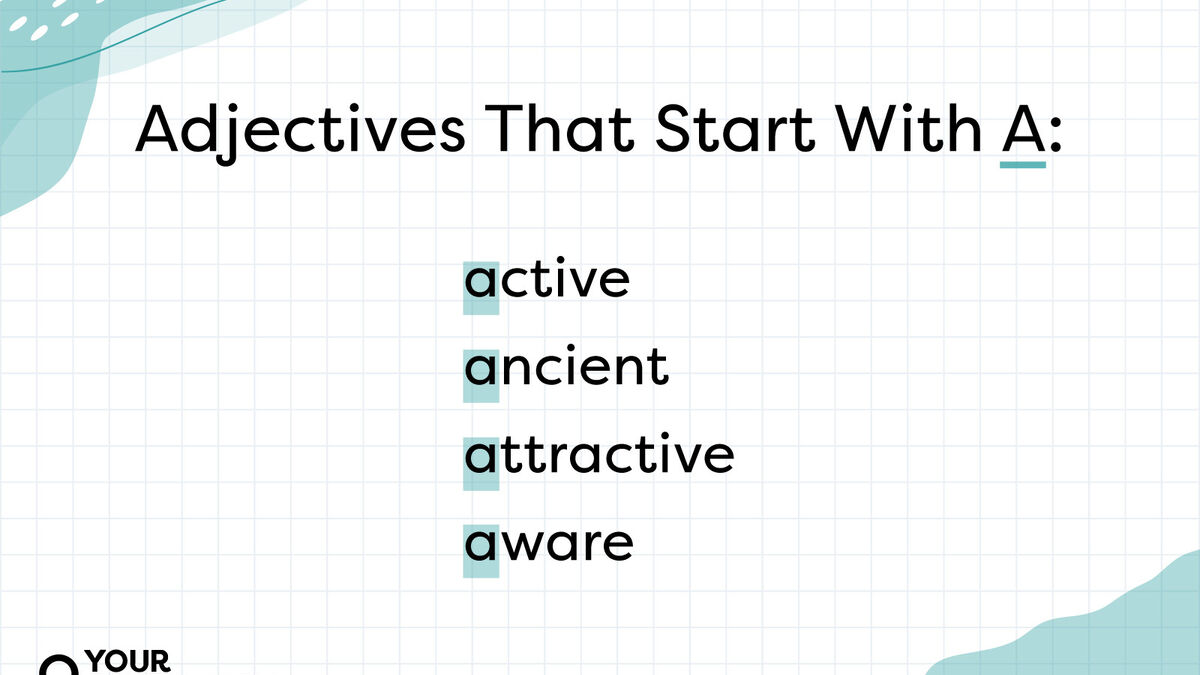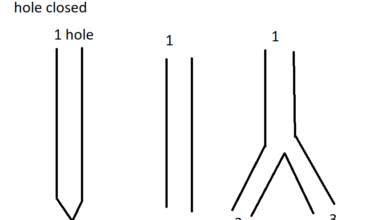Introduction to adjectives that start with a
Have you ever paused to consider how adjectives bring our language to life? Words like “amazing,” “audacious,” and “authentic” inject vibrancy and specificity into our communication. But what about adjectives that start with A? Let’s take a deep dive into the world of “A” adjectives, examining how they enhance our speech, their emotional impact, and their utility in various contexts.
Why Adjectives Matter in Communication
The Building Blocks of Expression
Adjectives are the unsung heroes of language. They add color, nuance, and depth to our words. Imagine describing a sunset as merely “a sunset.” Now, compare that to “a awe-inspiring amber-hued sunset.” The latter paints a vivid picture, right? Adjectives allow us to communicate thoughts and emotions more precisely, creating a stronger connection between the speaker and the listener.
The Role of ‘A’ Adjectives in Vocabulary
Starting with A, adjectives cover a wide range of expressions, from positive descriptors like “admirable” to more intense options like “abrasive.” These words are versatile, used in poetry, storytelling, or even daily conversations. Understanding their scope helps us become more articulate and expressive.

Setting the Tone
Adjectives also influence tone. Whether you’re writing a heartfelt letter or crafting an academic essay, choosing the right descriptor makes all the difference. For instance, calling a person “adaptable” versus “aloof” changes not just the meaning but also the emotional weight of your message.
Positive Adjectives That Start With A
Adding Positivity to Your Day
Positive adjectives starting with A are perfect for encouraging others or describing uplifting moments. Words like “adventurous,” “affectionate,” and “amiable” shine with optimism. These words evoke warm feelings and create a sense of connection, whether you’re writing a greeting card or delivering a motivational speech.
Examples in Context
- Adventurous: “Her adventurous spirit led her to explore untouched corners of the world.”
- Affectionate: “The puppy’s affectionate nuzzles melted everyone’s heart.”
- Amiable: “His amiable demeanor made him a favorite among his colleagues.”
The Emotional Impact
These adjectives resonate emotionally. They foster positivity and inspiration. Using them frequently in your interactions can leave a lasting impression on people, making your communication memorable and uplifting.
Negative Adjectives That Start With A
The Power of Negative Descriptions
Negative adjectives may seem undesirable, but they serve a purpose in the language. Words like “apathetic,” “arrogant,” and “abrasive” convey criticism or highlight areas of concern. These adjectives allow for honesty and clarity when discussing challenging situations or traits.
Examples in Context
- Apathetic: “He seemed apathetic about the project, offering little input or enthusiasm.”
- Arrogant: “Her arrogant attitude alienated her from her peers.”
- Abrasive: “His abrasive tone made the conversation uncomfortable.”
When and How to Use Them
Negative adjectives are best used sparingly and strategically. Overuse can create a pessimistic tone, but when used thoughtfully, they help in addressing issues or providing constructive criticism.
Neutral Adjectives That Start With A
Balancing the Scale
Neutral adjectives like “analytical,” “articulate,” and “astute” add depth without evoking strong positive or negative emotions. These words are adjectives that start with a invaluable in professional settings, educational discussions, and analytical writing.
Examples in Context
- Analytical: “Her analytical approach to problem-solving impressed the management team.”
- Articulate: “He is articulate, expressing his ideas with clarity and precision.”
- Astute: “Her astute observations shed light on the core issues of the debate.”
Their Importance in Communication
Neutral adjectives bring balance to communication. They ensure clarity and objectivity, making them ideal for business reports, academic writing, and diplomatic conversations.
Adjectives That Start With A in Storytelling
Creating Vivid Imagery
Storytelling thrives on adjectives. Imagine a character described as “awkward,” “aloof,” or “audacious.” These words not only flesh out the character but also set the stage for their actions and growth. Adjectives are key to drawing readers into the narrative.
Examples in Use
- Audacious: “The audacious knight charged into the dragon’s lair without hesitation.”
- Awkward: “An awkward silence filled the room after his unexpected confession.”
- Aloof: “She remained aloof, observing the chaos from a distance.”
Enhancing Emotional Engagement
By choosing adjectives that resonate with the audience, writers can evoke empathy, excitement, or suspense. The right descriptors make a story unforgettable, pulling readers into its world.
Exploring Specialized Adjectives That Start With A
Scientific and Technical Terms
Adjectives like “aqueous,” “aerodynamic,” and “atomic” have specific uses in science and technology. These words are precise, aiding in clear communication of complex ideas. For example:
- Aqueous: “The solution was stored in an aqueous medium to maintain stability.”
- Aerodynamic: “The aerodynamic design of the car reduces drag.”
- Atomic: “Atomic particles are the building blocks of matter.”

Creative and Artistic Descriptions
In the arts, adjectives like “abstract,” “aesthetic,” and “asymmetrical” describe styles and expressions. They help critique art, analyze literature, or discuss musical compositions. For example:
- Abstract: “The abstract painting challenged conventional notions of form.”
- Aesthetic: “The aesthetic appeal of the sculpture lies in its simplicity.”
- Asymmetrical: “The asymmetrical layout added a modern touch to the design.”
Enhancing Understanding Through Precision
These specialized adjectives ensure accuracy, making them indispensable in technical writing and creative discussions.
Tips for Using Adjectives That Start With A Effectively
Choose Words Wisely
Avoid overloading your sentences with adjectives. Instead, select words that add the most value to your description.
Context Is Key
Consider the context in which you’re communicating. An adjective that fits perfectly in a casual conversation might seem out of place in a formal email.
Expand Your Vocabulary
The more adjectives you know, the more versatile your language becomes. Reading widely and noting new words can significantly enrich your vocabulary.
Conclusion:
adjectives that start with a are as varied and versatile as the language itself. Whether you’re aiming to inspire, critique, or simply describe, these words offer a treasure trove of options to enhance your communication. By understanding their nuances and practicing their use, you can elevate both your spoken and written language to new heights.
So, the next time you’re crafting a adjectives that start with a message or telling a story, why not reach for an “A” adjective? You might just find the perfect word to amplify your expression!





